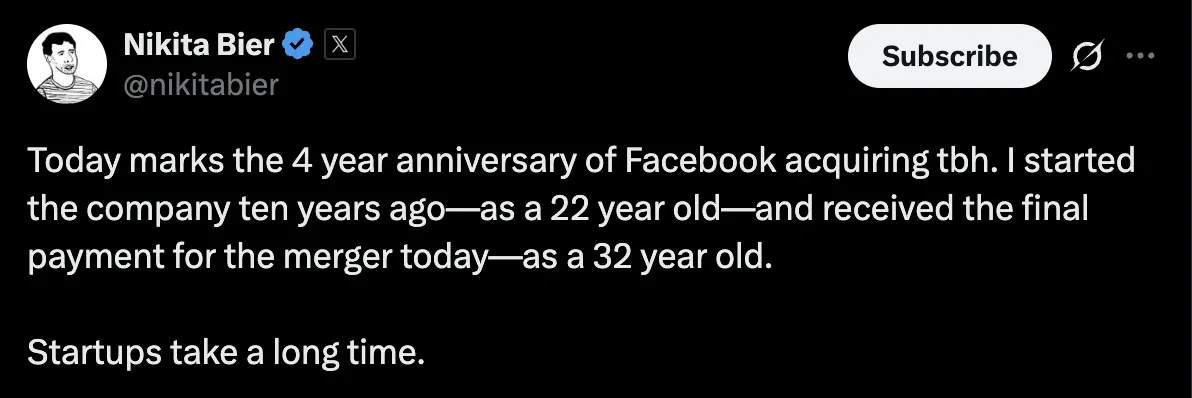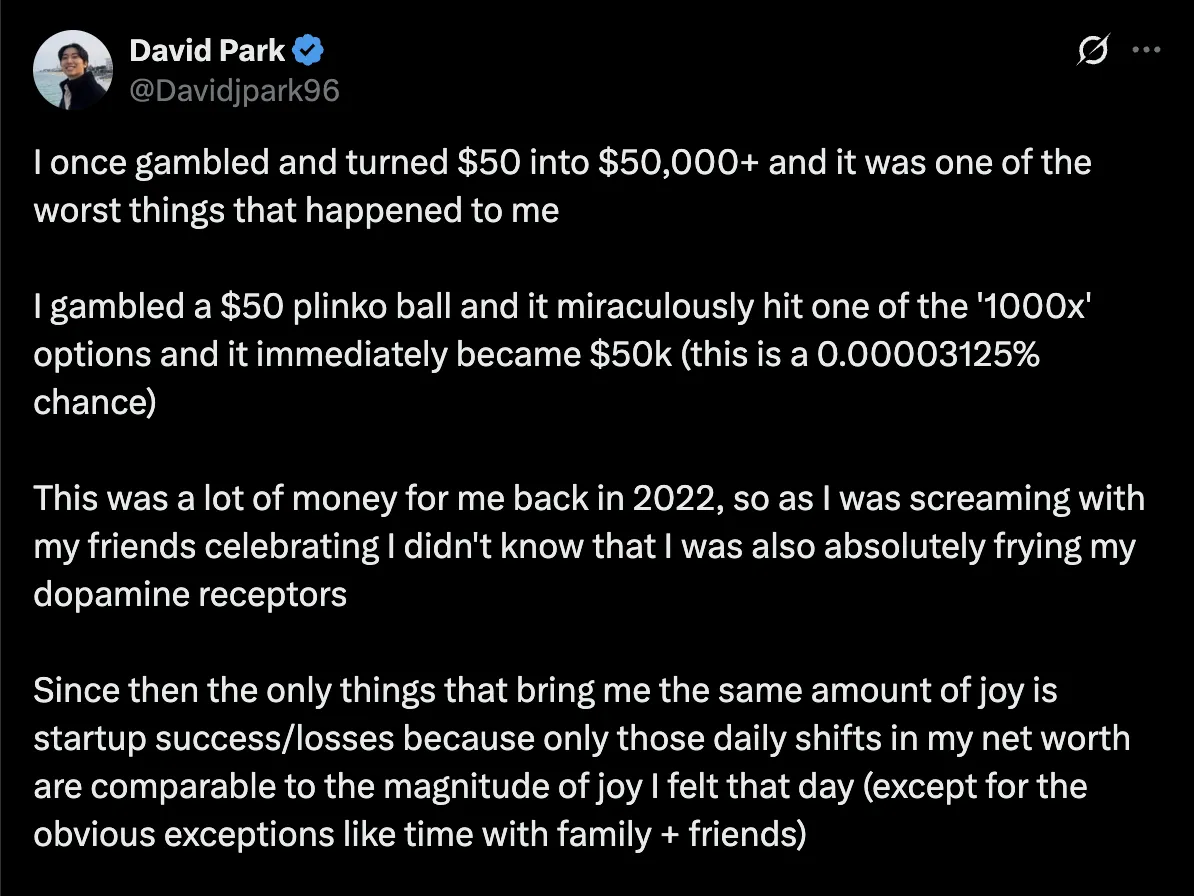Playing long games
Earlier this year I was turned down by a software engineering candidate who decided to instead go work for the same manager he's worked with his entire career. This was not a young guy -- we're talking 20+ years of working for the same manager, and he was enjoying it so much he didn't want to try anything else.
Around the same time I heard about a sales rep at a local software company who was slated to make a million dollars that year. It was all residuals from long-term clients that he had been selling the same software to for decades.
These are long games. A lesson I'm beginning to learn is that most good things take years.
I know in my heart this is true; I'm the beneficiary of 13 years of piano lessons and forced daily practice. After years of ignoring the piano I can still sit down and easily sight-read anything up to an intermediate level.
But at the same time... I'll be the first to say getting rich quick wouldn't hurt. I keep buying meme stocks, waiting for a 10x. They keep going up (or down) 10%, 20%, sometimes 30% if I'm lucky (or unlucky). Every morning I wake up hoping to see a zillion dollars in my stock account. Hasn't happened yet. Sometimes these things just take time.
I read the book "Amp It Up" by Frank Slootman recently. Someone called him David Goggins for tech CEOs. It's a great book, full of inspiration, and I loved reading it. One thing he says towards the end is that career progression takes time too. If you look at his resume, he stayed at companies for a long time, usually 7 years or more. There's unique opportunities that materialize after longer periods of time.
Despite my resume, I do believe this. There are things you learn in year 2 you couldn't have learned in year 1. Maybe the marginal return is lower -- it's hard to imagine a faster pace of learning than the first six months at a new job -- but I believe there are unlocks in years 3, 4, 5, and so on that you don't get in the first 2.

Startups take a long time too, though this is better known. I left Replit in 2024, after they'd been in business for 8 years with limited success. I left in part to join a company with faster growing revenue. One month later, Replit launched an AI coding agent that grew to $100M in annual run-rate revenue in under a year.
Nikita Bier, the GOAT of get-rich-quick schemes in Silicon Valley, still took years to find an explosive business model, and years to get the full payout.

We clearly used to believe this as a society. When I told my grandpa that no one in my industry offers a pension plan he didn't believe it. Pensioners aren't necessarily rich but the fact that staying with one company for 30+ years is unfathomable now shines a light on the uniqueness of the Baby Boomer system.
Making money too quickly can warp your perception of reality. I have stories here, for another post. This gambling story from the founder of Jenni AI resonates. The thrill of making thousands of dollars in mere seconds is unbeatable, and very easy to see how it can corrupt someone.

Of course, not all long games are good, and there are fewer things more depressing than stories of people who devoted their lives to something that never panned out. I remember reading some LinkedIn slop (can't find it, wouldn't link it if I could) about a man who devoted his career to a company, worked long hours for years, never got a promotion etc, and when he retired they rewarded him with a nice watch. Forgive the kitsch but the principle is true. Just like there's nothing as powerful as a long game that compounds to the player's benefit, the opposite is true, and if you spend your time on things that don't build you up, you won't have much to show for it down the road.
Food for thought! I'm hoping to stay in one place for at least 5 years this time (house and job). Longer would be great but we're all just going to have to wait and see how life plays out.